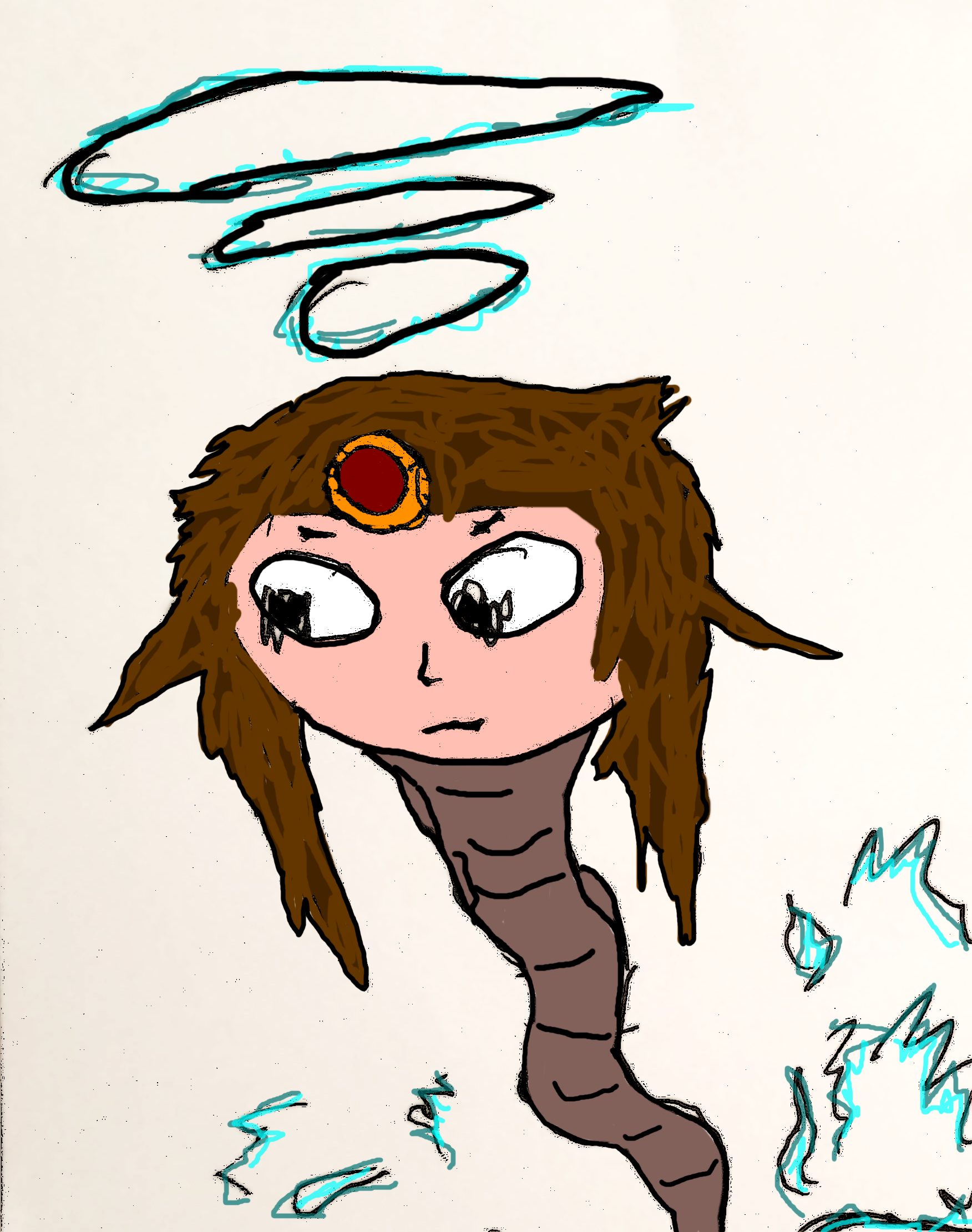“Even more stringent benefit cuts are on the cards.” “Ministers are planning billions in cuts to disability benefits.” “the House of Lords economic affairs committee said this might not be enough.”
FFS just legalise euthanasia already. I’d rather get a quick injection than starve to death out on the streets. Even the Nazis were kinder to the disabled, gassing them to death quickly.
Even from a capitalist growth perspective it is not ‘waste’, giving disabled people money allows them to spend it on stuff. And poor disabled people are likely to spend almost all they receive.
Also disabled people create jobs for other people like nurses, carers, people who make and install mobility aids, etc.
they spent so long trying to convince people about austerity by using the household budget analogy that they started believing it themselves
Where are they spending it though? Online companies outside the country?
I’d wager that other than groceries a lot of people who are housebound by disability benefits are getting both their entertainment and their consumer deals from companies outside britain.
rent

Rent is covered by Housing Benefit, which is a separate benefit to the PIP payments (disability).
that makes sense. there is a similar scheme in ireland but hardly anybody gets to avail of it so it’s mostly regular welfare and disability payments getting funneled to the landlords.
The whole thing is a byzantine mess to navigate. When it’s properly applied for it’s paid directly to landlord though.
Ideally I’d want every single one of these benefits thrown out, along with the entire infrastructure that exists to manage them (costs a lot) and replace it all with one single payment that everyone can get regardless of circumstances.
I would think the majority of expenses would be on domestic essentials like utilities, housing, medication (and groceries ofc.) etc.
How much do you think disabled people get? Even when I’m in receipt of benefits, its just enough to pay the bills. ie - utilities, rent, food and basic clothes.
in Ireland if you are “lucky” enough to get on disability it is still not nearly enough to live. if you’re under the age of 70 it can take months or years of appeals to get approved. you need other supports/income to survive but you also have to lie to the govt about those because it’s means tested. you get €230/week which isn’t enough to even just cover rent most places in the country let alone the cities. I’m currently in the process of trying to get on it and recently got kicked off my bridge payment that i managed to get while waiting.
I know how much. Intimately.
Housing Benefit covers the rent. UC is £200. PIP is between £300 and £665 depending on tier and whether someone receives the mobility component, so we’re talking about between £500 (after rent) and and £865 per month on utilities and groceries.
My utilities are like £160/mo and my groceries are £150/mo for a single person.
This leaves between £190 and £555 left over, dependent on tier obviously. Lower tier will be on 50% council tax exemption while upper tier will be on 100%. Granted, if you’re on lower tier here there is practically nothing left over when factoring in council tax.
Given that the disabled in receipt of benefits are liable to lose those benefits if they so much as step outside their house there is no travel cost to factor in because of being housebound.
The flip side of this is that you’re repeatedly put through the living hell of filling out that points based assessment form where some reviewer with claim denial targets might or might not completely ruin your life when they read your answers based entirely upon their mood that day. Do not get me started on the personal visits you get no say in where you’re sometimes given barely a day or two of notice beforehand.
Not everyone who claims disability is claiming for the “can’t walk 50 metres” part. Many people on disability work full time even, a far cry from never leaving the house. Many have daily hospital appointments. In other words, many have substantial travel costs. Many people, for various reasons, aren’t eligible for housing benefit and have to pay their rent themselves out of their UC and PIP. Your experience of disability isn’t the same as everyone else’s. Many have nothing left over after paying their basic costs, many don’t even have enough for the basics. Also the lowest rate of PIP is £114 a month, not £300.
I’m not sure why you’re trying to make being disabled and living on benefits easier than it actually is.
Right but I clarified in my original comment that I was talking about the housebound. I’m not saying that others do not exist, just considering what ghouls may be thinking about behind the scenes.
What does this have to do with the topic though? Are you saying housebound people get too much money? And so what if they buy entertainment from abroad - doesn’t everyone these days? Should they have to stare at a blank wall all day? They are still contributing to the British economy by buying their food and utilities here, and as stated, many actually pay rent. To even bring up the topic of housebound people not contributing enough to the economy by supposedly spending money abroad is such a capitalist mindset - why do disabled people need to justify their existence and their pittance in payments by contributing to the economy anyway?
Are you saying housebound people get too much money?
No. Not everything is an argument or debate. I’m just thinking out loud and putting thought to post.
Try to assume the best of everyone here.
And so what if they buy entertainment from abroad - doesn’t everyone these days?
Yes but the prior user mused that they’re contributing to the economy. They’re contributing to a different economy if it goes abroad. I’m speculating that the ghouls may think that has absolutely no meaningful value to them whatsoever.
To even bring up the topic of housebound people not contributing enough to the economy by supposedly spending money abroad is such a capitalist mindset
Yes it is, because I’m speculating about what they’re thinking.
You’re assuming the worst instead of the best of other people here. I am not your enemy or trying to fight or argue with you, at all.
why do disabled people need to justify their existence and their pittance in payments by contributing to the economy anyway?
I agree. That does not mean the ghouls aren’t thinking it though.
Even if you were to accept fascist “useless eaters” rhetoric as true, taking care of people who can’t provide for themselves is kind of the point of society. If we can’t do that, then what’s the point? Might as well burn it all down and return to monkey.
Some anthropologists say the first sign of civilization is a healed femur. Someone who breaks their femur needs assistance throughout the healing process and likely afterwards as it impedes their ability to care for themselves, gather food/water, etc. So an individual that shows signs of having broken their femur and lived long enough for it to heal must have had some sort of support/care network of friends/family.
I guess what I’m saying is that neolithic hunter-gatherers had a better sense of community and mutual care than the modern healthcare system
Yeah, but they didn’t have a profit motive to dRiVe InNoVaTiOn.

society is good because it’s a structure you can exploit and steal wealth from, but society is bad because it’s a structure that requires at least a minimum of maintenance. and we all know how neoliberalism deals with maintenance.
My favorite video just kinda displays how far from our own humanity we’re straying when tossing people to the proverbial wolves.
I found a YouTube link in your comment. Here are links to the same video on alternative frontends that protect your privacy:
 : “We must get rid of the useless eaters! They’re taking our money!”
: “We must get rid of the useless eaters! They’re taking our money!” : “Please sir, just one job? Are you hiring?”
: “Please sir, just one job? Are you hiring?” : “Sorry kiddo, all set here! I just don’t need any more workers. Sorry! All the work’s been done.”
: “Sorry kiddo, all set here! I just don’t need any more workers. Sorry! All the work’s been done.”Then they’re not ‘eaters’ are they? No one is being stolen from. Is a spare tire in a car ‘dead weight’?
Liberals once again reproducing the logic and goals of Aktion T4.
At the end of capitalism, there is Hitler.
Let’s see how capitalism is doing today
keeping disabled people alive is a “waste” of money

vote to kick tories out
look at replacement
tories

Look democracy is when you’re allowed to choose between blue tories and red tories (and maybe sometimes orange tories if you’re good). If we can just switch back and forth between two parties with identical economic policy another dozen or so times I’m sure it’ll all work out.
This shit makes me sick. Most of my friends have mental disabilities and some have physical disabilities. I’m friends with someone that is wheel chair bound, and has to work 2 jobs because her disability checks don’t pay enough and she needs assistance. She can’t even get married if she wanted to because the government will cut her disability payments. She deserves a better life but is stuck in this shitty system.
You bring up an important point that I don’t see talked about enough. Disabled people don’t have marriage equality for this reason.
It’s partially why I haven’t sought a professional diagnosis from a psychologist. My therapist confirmed my diagnosis though. I’m married so if I was to earn disability payments after paying $3000 or so for a diagnosis, my already low payments would be cut in half because I’m married.
The only reason I’ve ever even considered seeking disability payments is because I’m among the unlucky statistics of autism that is historically unemployed.
People 10-100k years ago, what pop culture call “cavemen”, took care of disabled people better.
Even medieval euros weren’t so fucking cruel.
https://www.sciencedirect.com/science/article/abs/pii/S1879981711000064
"The provision and receipt of health care may therefore reflect some of the most fundamental aspects of a culture. "
https://www.nytimes.com/2012/12/18/science/ancient-bones-that-tell-a-story-of-compassion.html
nyt article text
While it is a painful truism that brutality and violence are at least as old as humanity, so, it seems, is caring for the sick and disabled.
And some archaeologists are suggesting a closer, more systematic look at how prehistoric people — who may have left only their bones — treated illness, injury and incapacitation. Call it the archaeology of health care.
The case that led Lorna Tilley and Marc Oxenham of Australian National University in Canberra to this idea is that of a profoundly ill young man who lived 4,000 years ago in what is now northern Vietnam and was buried, as were others in his culture, at a site known as Man Bac.
Almost all the other skeletons at the site, south of Hanoi and about 15 miles from the coast, lie straight. Burial 9, as both the remains and the once living person are known, was laid to rest curled in the fetal position. When Ms. Tilley, a graduate student in archaeology, and Dr. Oxenham, a professor, excavated and examined the skeleton in 2007 it became clear why. His fused vertebrae, weak bones and other evidence suggested that he lies in death as he did in life, bent and crippled by disease.
They gathered that he became paralyzed from the waist down before adolescence, the result of a congenital disease known as Klippel-Feil syndrome. He had little, if any, use of his arms and could not have fed himself or kept himself clean. But he lived another 10 years or so.
They concluded that the people around him who had no metal and lived by fishing, hunting and raising barely domesticated pigs, took the time and care to tend to his every need. Image
“There’s an emotional experience in excavating any human being, a feeling of awe,” Ms. Tilley said, and a responsibility “to tell the story with as much accuracy and humanity as we can.”
This case, and other similar, if less extreme examples of illness and disability, have prompted Ms. Tilley and Dr. Oxenham to ask what the dimensions of such a story are, what care for the sick and injured says about the culture that provided it.
The archaeologists described the extent of Burial 9’s disability in a paper in Anthropological Science in 2009. Two years later, they returned to the case to address the issue of health care head on. “The provision and receipt of health care may therefore reflect some of the most fundamental aspects of a culture,” the two archaeologists wrote in The International Journal of Paleopathology.
And earlier this year, in proposing what she calls a “bioarchaeology of care,” Ms. Tilley wrote that this field of study “has the potential to provide important — and possibly unique — insights into the lives of those under study.” In the case of Burial 9, she says, not only does his care indicate tolerance and cooperation in his culture, but suggests that he himself had a sense of his own worth and a strong will to live. Without that, she says, he could not have stayed alive.
“I’m obviously not the first archaeologist” to notice evidence of people who needed help to survive in stone age or other early cultures, she said. Nor does her method “come out of the blue.” It is based on and extends previous work.
Among archaeological finds, she said, she knows “about 30 cases in which the disease or pathology was so severe, they must have had care in order to survive.” And she said there are certainly more such cases to be described. “I am totally confident that there are almost any number of case studies where direct support or accommodation was necessary.” Image The Man Bac burial site.Credit…Lorna Tilley
Such cases include at least one Neanderthal, Shanidar 1, from a site in Iraq, dating to 45,000 years ago, who died around age 50 with one arm amputated, loss of vision in one eye and other injuries. Another is Windover boy from about 7,500 years ago, found in Florida, who had a severe congenital spinal malformation known as spina bifida, and lived to around age 15. D. N. Dickel and G. H. Doran, from Florida State University wrote the original paper on the case in 1989, and they concluded that contrary to popular stereotypes of prehistoric people, “under some conditions life 7,500 years ago included an ability and willingness to help and sustain the chronically ill and handicapped.”
In another well-known case, the skeleton of a teenage boy, Romito 2, found at a site in Italy in the 1980s, and dating to 10,000 years ago, showed a form of severe dwarfism that left the boy with very short arms. His people were nomadic and they lived by hunting and gathering. He didn’t need nursing care, but the group would have had to accept that he couldn’t run at the same pace or participate in hunting in the same way others did.
Ms. Tilley gained her undergraduate degree in psychology in 1982 and worked in the health care industry studying treatment outcomes before coming to the study of archaeology. She said her experience influenced her interest in ancient health care.
What she proposes, in papers with Dr. Oxenham and in a dissertation in progress, is a standard four-stage method for studying ancient remains of disabled or ill individuals with an eye to understanding their societies. She sets up several stages of investigation: first, establishing what was wrong with a person; second, describing the impact of the illness or disability given the way of life followed in that culture; and third, concluding what level of care would have needed.
A paralyzed person, for example, would need “direct support” similar to nursing care while someone like Romito 2 would need “accommodation,” that is to say tolerance of his limitations and some assistance.
Debra L. Martin, associate professor of biological anthropology at the University of Nevada, Las Vegas, invited Ms. Tilley to write “The Bioarchaeology of Care” for a special report on new directions in bioarchaeology published this year in the Archaeological Record, the magazine of the Society for American Archaeology. Image CRUCIAL CLUE Skeletons at the Man Bac burial ground. Their straight postures suggest that Burial 9’s fetal position was evidence of severe disability.Credit…Lorna Tilley
She said in an e-mail that what Ms. Tilley proposes “is a very nicely integrated approach” to using all the available evidence. “Lorna’s innovative approach,” she said, “has provided a way to move from the bones of individuals to thinking about the community as a whole.”
The fourth stage in the proposed method is where the gathered facts form the basis for interpretation. Extrapolating from hard evidence drawn from human remains to conclusions about how people lived is at the heart of bioarchaeology, a word coined in the 1970s by Jane E. Buikstra at Arizona State University to describe using the methods of physical anthropology, which concentrates on the bones, and those of archaeology, which concentrates on the culture and its artifacts, to try to “people the past,” as she phrases it, to put ancient people into a cultural context.
Dr. Buikstra, director of the Center for Bioarchaeological Research, who currently concentrates on the co-evolution of humans and their diseases, said that “People have from time to time across the years tried to attribute caring and caring for” to ancient humans. But, she said, “getting into the minds of ancient people” is always difficult. Ms. Tilley’s methods for how and when to make that kind of leap would base such attempts on standards used today for evaluating health care needs for severely disabled people.
Dr. Martin, who studies violence and illness as well, gave an example from her own work of the sort of case that can benefit from Ms. Tilley’s approach. The case is described in a coming book, “The Bioarchaeology of Individuals.” A skeleton of a young woman about 18 years old from a site on the Arabian Peninsula more than 4,000 years old indicated that the woman had a neuromuscular disease, perhaps polio.
“Her condition likely made it difficult for her to walk,” Dr. Martin wrote in an e-mail. “She had exceedingly thin arm and leg bones with very little buildup of normal muscle attachments.” She probably received round-the-clock care, Dr. Martin concluded.
But one problem that she had was apparently not a result of the disease. The teeth that she had were full of cavities, and she was “missing teeth from abscesses and periodontal disease.”
Those who cared for the young woman may have been too kind, Dr. Martin said. Her people grew dates, and, “Perhaps to make her happy, they fed her a lot of sticky, gummy dates, which eventually just rotted her teeth out, unusual for someone so young.
I thought this was a Trump policy, turns out it’s Starmer
“But if we don’t give reform what they want, they’ll get elected and REALLY get what they want!”
what the fuck were they even fighting about in the world wars?
Who gets to be on top.
FFS just legalise euthanasia already. I’d rather get a quick injection than starve to death out on the streets. Even the Nazis were kinder to the disabled, gassing them to death quickly.
My brother made a good point that they won’t legalize euthanasia (in particular for mental ill ess like depression) because they’re afraid too many people will decide to take that option, especially as capitalism continues to fail. Too many people taking that option means nobody to clean toilets for the rich, as the dumbass Ozzy Osbourne daughter put it
CW: Suicide, Involuntary institutionalization
I had the shower thought today after thinking about involuntary institutionalization that in the US a lot of this mental health awareness is just something they do to keep people from killing themselves. If I call the national suicide hotline they’ll send some cops to my door that may kill me instead, but they may also just take me to the hospital where I’m then locked up and forbidden from many basic rights until they “fix” me. The time I voluntary had myself committed was one of the worst things I ever did and I still carry trauma from it a decade later.
CW: suicide
spoiler
What you described is my worst nightmare. Really sorry you had to go through that. I’m in Canada but even at my worst moments I never even let my doctors or therapist have even the suggestion that I was suicidal. I don’t know what the best strategy is to deal with people having a mental health crisis but personally getting institutionalized would probably drive me insane. The other thing that comes to mind is that so much mental illness is caused by capitalism ie rent, low wages, poverty. All issues national governments seem to have no interest in addressing. Papering over the cracks is their method of choice.
uk government are a waste of life
The money model, best articulated in Russell’s 1998 book, Beyond Ramps: Disability at the End of the Social Contract, posits that disabled people are not, as they are often framed in dominant culture, a “burden to society,” but are actually a valuable resource. As Russell explains: “…persons who do not offer a body which will enhance profitmaking as laborers are used to shore up US capitalism by other means.” Disabled people are a nexus around which the capacity for surplus labor power can be built (often financed in part by federal money)—whole sectors of our economy have sprung forth from the money model, which has normalized the commodification of things, systems, and places that maintain disabled bodies in pursuit of squeezing profit from the money which passes through disabled people towards their survival and care. For example, nursing homes, Russell argued, are not places of rest and comfort, but a strategy for commodifying the “least productive” so that they can both be “made of use to the economic order” and free up the labor supply of those who love and wish to care for them. This system benefits neither the workers nor disabled people, only what Russell called the “owning class.” US disability policy, instead of being oriented around supporting the needs of disabled people, sanctions and facilitates the capitalist capture of nearly all aspects of disablement, impairment, chronic illness, and disability, including the way that “reasonable accommodations” are commodified (as explored by Ruth Colker in her essay for this symposium).
I’d say the same thing happens with the entire structure of disability payments. Instead of simply accepting a letter from your doctor to prove your disability, they’ve built this insane system of assessors and regular assessments, employing over half a million people (in the UK), to harrass each disabled person every couple of years to decide whether they should still get the means of support necessary to their survival. Reject a large proportion of the claims, so the disabled person has to go through appeals, and tribunals, which create even more jobs.
Long story short: disabled people do things like community care, inventing things, instead of wasting their time for profit.
“Muh population decline. We need the population to grow! But also let’s do eugenics and cull people with disabilities! Law of the jungle baby!”
They only want the population of workers to grow, they want to eradicate all non-workers.
Jobs are becoming more and more selective.
Nepotism becomes the only way to get a job, it’s just called “networking”
unemployed people are left to starve to death
unemployed people = perfectly fine people porky turned his nose up at.
Austerity is a genocidal tactic
It is kind of shocking to me how the ruling class pretends it doesn’t understand what a lucrative business disability has always been and how the service sector around it is one of the remaining things keeping capitalism standing in the West.
Maybe they do understand and they want in. They’re destroying the safety net not to kill but to be the ones depended on, as survival is so much more lucrative as a grift
I’ve been kind of thinking the amount of fools in power who do not understand where their value comes from outnumber those who do by a long shot these days. Failsons of failsons of all the old money who were just as evil but at least knew how the game worked. So the result of this is that now all of these lumps think that the money they have was always there and will always be there and they can do whatever they want. Which I guess to be fair has been the case for a long time, but the mammon machine doesn’t care and I’m waiting for the day they find out.
Why aren’t people having more kids I wonder





















